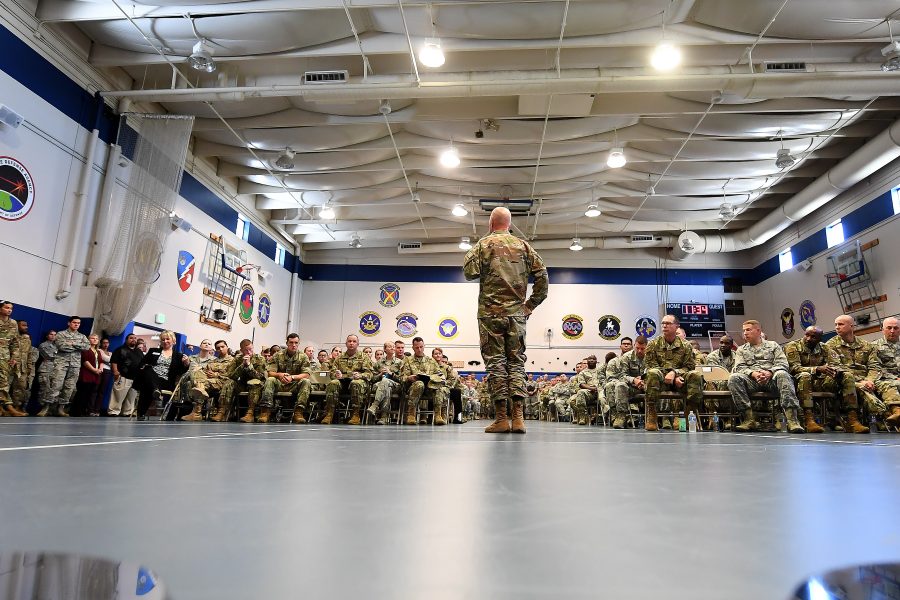Before the Space Force was founded in December 2019, Airmen ruled the heavens, at least as far as most military space activities were concerned. For decades tens and perhaps hundreds of thousands of Airmen controlled and acquired satellites, managed communications and intelligence, and performed other space missions. Air Force Space Command claimed more than 26,000 personnel at one point.
A bipartisan group of lawmakers are close to giving some of those Airmen a chance to claim at least an honorary part of the newest military service.
The “Space Force Legacy Guardian Recognition Act” is included in the House version of the National Defense Authorization bill, but not the Senate version. The measure would allow the Secretary of the Air Force to establish a process for veteran space professionals to be designated as honorary members of the Space Force. They would be called “Legacy Guardians.”
Legacy Guardians would be eligible for “a certificate, approved device, or other insignia of such designation,” the bill states. They would not, however, be eligible for any additional benefits.
The the measure would apply to anyone “whom the Secretary of the Air Force determines served in support of space operations as a member of the Air Force.” Space operators from the other services need not apply. Lawmakers have also introduced the matter as stand-alone legislation, but its best hope is that House and Senate conferees include it in the final compromise version of the NDAA now under construction.
A staffer for Rep. Don Bacon, the retired Air Force brigadier general who introduced the legislation, told Air & Space Forces Magazine that lawmakers won’t distinguish among specialties, however. Space acquisition, intelligence, and other career fields could all qualify potentially—that decision would be left to the Department of the Air Force.
Bacon’s bill is co-sponsored by four House members, all from the Space Force caucus, including Reps. Salud Carbajal (D-Calif.), Brian Babin (R-Texas), Doug Lamborn (R-Colo.), and Ted Lieu (D-Calif.).
Bacon was not a space operator, but he and the veterans on his staff felt strongly about recognizing the legacy of space operators who paved the way for the Space Force.
“Veterans of a service are important for a community as well,” the staffer said. “They’re representative of that service.”
The staffer noted that as things currently stand, it will take years, if not decades, for the Space Force to develop a veteran community.
Since first introducing the legislation in the NDAA, Bacon’s office has received positive feedback from veteran space operators and current Guardians alike, the staffer claimed.
“This designation would not only bring together our space operations veterans with those who currently serve in the Space Force,” Lieu said in a statement. “It would appropriately honor the dedicated veterans and culture of service of the Air Force Space Command.”
“I’m proud to stand alongside my colleagues in acknowledging the contributions of our nation’s Air Force Space Operators who laid the foundation upon which our current Space Force is built,” Babin said in a statement. “Their expertise and devotion to a country pushed us upward and outward, establishing and ensuring America’s military dominance in space.”
A Department of the Air Force spokeswoman told Air & Space Forces Magazine that department leadership was not involved in crafting the legislation and is not tracking if or how many retired space operators have requested honorary or retroactive status in the Space Force.
The Space Force Association endorsed the measure in an Aug. 9 release.

